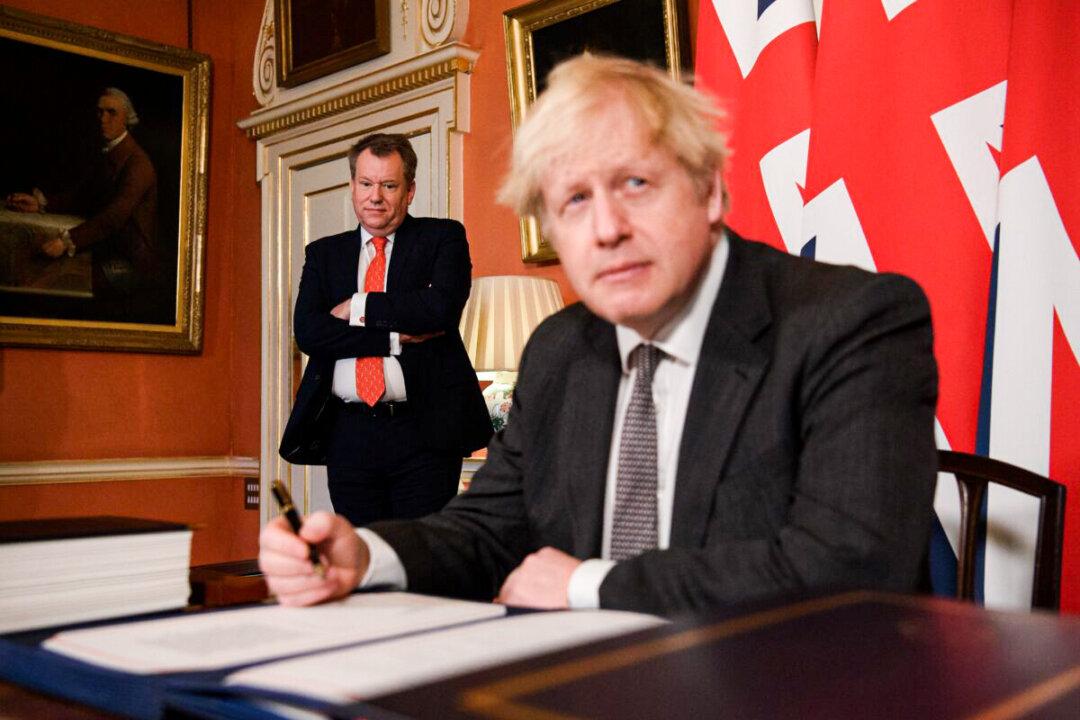Britain’s Brexit minister David Frost resigned on Dec. 18 “with immediate effect,” dealing another blow to Prime Minister Boris Johnson’s crisis-ridden government.
The resignation came after The Sunday Times reported that Frost had handed his resignation in earlier this month, but agreed to stay until January after Johnson told him the government couldn’t cope with a high-profile departure at the moment.





